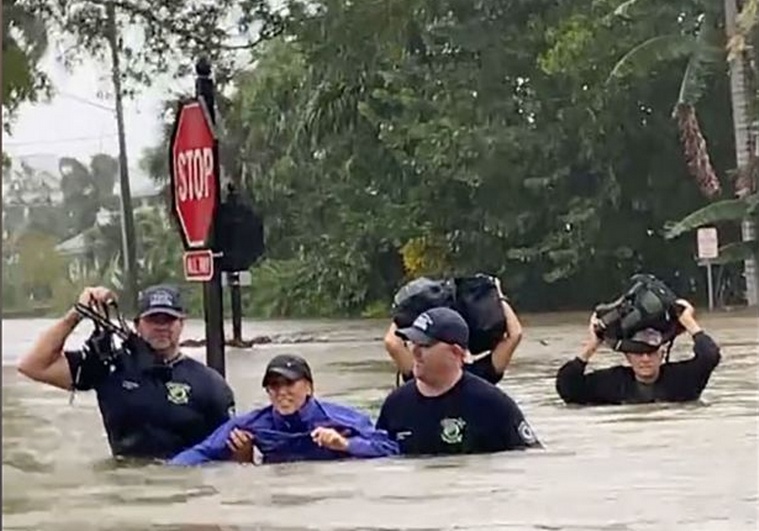September 29 NEC Energy News
¶ “Nuclear Fuel Reprocessing Plant Hit By 26th Postponement” • The completion date for a spent nuclear fuel reprocessing plant in Japan, a key component in the cycle policy, was pushed back for the 26th time. The construction cost of the reprocessing plant was initially estimated at ¥760 billion ($5.25 billion). It has grown to ¥3.1 trillion ($21.4 billion). [Asahi Shimbun]

¶ “Hay! Alfalfa Is The Biggest Issue For Western Water” • All the reductions of water use cities can do will not be nearly enough to restore the Colorado River. But alfalfa farmers in one California irrigation district use far more water than the allotment for the state of Nevada. Alfalfa farms use almost enough water to cover the river’s shortfall. [CleanTechnica]
¶ “Hurricane Ian’s Rapid Intensification Is Part Of A Trend For The Most Dangerous Storms” • Ian’s wind speed increased by 35 mph in less than three hours. Scientists say rapid intensification of hurricanes is getting more likely as the climate crisis pushes ocean temperatures higher, enabling them to grow at breakneck pace into deadly major hurricanes. [CNN]
¶ “Hurricane Ian Continues To Batter Florida As A Category 1 Storm While Officials Warn The Worst Is Yet To Come” • Ian made landfall as a Category 4 near Cayo Costa around 3:05 pm, with winds near 150 mph. It continued to batter Florida with high winds, heavy rain, and historic storm surge Wednesday night, even as it weakened to a Category 1. [CNN]

¶ “Big Oil’s Toxic Emissions From Flaring Undeclared” • Major oil companies are failing to declare significant greenhouse gas emissions from flaring gas at oil fields, a BBC News investigation revealed. Millions of tonnes of undeclared emissions come from gas flaring at oil fields that are operated by BP, Eni, ExxonMobil, Chevron, and Shell. [BBC]
¶ “Electric School Buses Used To Support Maryland Energy Grid” • A widespread adoption of EVs with V2G technology can help balance the nation’s energy grids. The Montgomery County Public School district in Maryland put the idea into practice by using its electric school bus fleet to provide power reserves to support the PJM electric grid. [CleanTechnica]
¶ “ESS Flow Battery To Supply 200-MW, 2-GWh Of Storage To California Utility” • ESS is an Oregon-based company that makes flow batteries using abundant and inexpensive materials: iron, salt, and water. ESS is to supply the Sacramento Municipal Utility District with a flow batteries with a total capacity of 200-MW, 2-GWh beginning next year. [CleanTechnica]
For more news, please visit geoharvey – Daily News about Energy and Climate Change.
